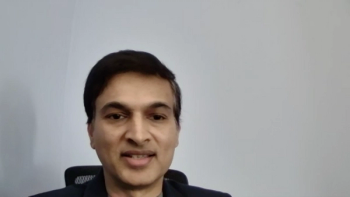
Vamshi Rao, MD, attending physician of Neurology at Ann and Robert H. Lurie Children’s Hospital of Chicago discusses how the pandemic has impacted access to spinal muscular atrophy (SMA) treatments.

Vamshi Rao, MD, attending physician of Neurology at Ann and Robert H. Lurie Children’s Hospital of Chicago discusses how the pandemic has impacted access to spinal muscular atrophy (SMA) treatments.
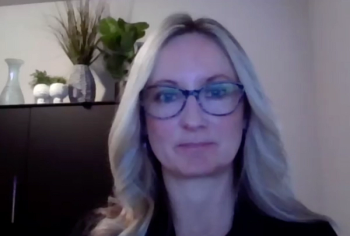
Brandi Riddle, chief financial officer at Strive Health, discussed the role technology and predictive analytics will play in changing kidney care in the future.

Skin disorders in Parkinson disease can be classified into 2 major groups: noniatrogenic, which are more prevalent in people with PD and not related to therapy, and iatrogenic, which are caused directly by antiparkinsonian therapies.

There needs to be a better understanding of cough drivers in patients as treatments have stopped working, said Krishna M. Sundar, MD, clinical professor, Pulmonary Division, Department of Medicine, and medical director, Sleep-Wake Center, University of Utah.
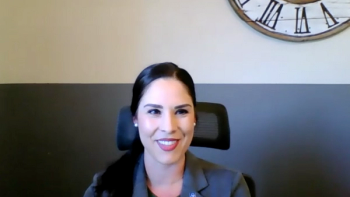
Electronic patient-reported outcomes (ePROs) tools can benefit patients by keeping them on treatment longer, and the pandemic has likely accelerated how many practices move to using ePROs, said Amy Ellis, chief quality officer at Northwest Medical Specialties.
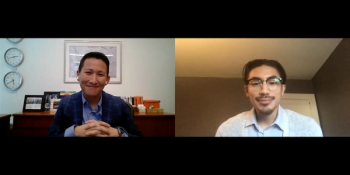
Through an organizational commitment to diversity and inclusion initiatives, the biopharmaceutical industry can better serve historically underserved populations and cultivate a more diverse workforce and inclusive culture.

Vamshi Rao, MD, attending physician of Neurology at Ann and Robert H. Lurie Children’s Hospital of Chicago, discusses how disease modifying therapies have improved spinal muscular atrophy (SMA) prognosis.
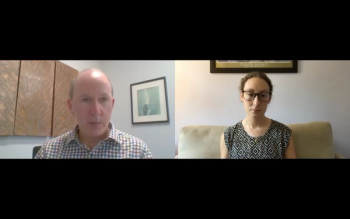
Telemedicine sprang up very quickly and will stay around to some extent once the pandemic ends, said Peter McAllister, MD, a neurologist, board certified headache specialist, and medical director of the New England Institute for Neurology and Headache.

Several factors will have a significant impact in the health care industry in 2021, such as management of disparities in vaccine administration and greater investment in telehealth, said Gurpreet Singh, MBA, US Health Services Leader at PwC.

Daratumumab represents an important addition to the armamentarium of care for improving patient outcomes, said Mark Wildgust, PhD, vice president of Global Medical Affairs/Oncology at Janssen.

Although Parkinson disease (PD) is often characterized as a motor disorder, the presence of nonmotor symptoms, such as skin disorders, is common and may provide insights into the pathophysiological mechanisms underlying PD.

Setting up a new tool to capture electronic patient-reported outcomes (ePROs) requires a lot of prep work to ensure patients are comfortable and ready to use the tool, said Amy Ellis, chief quality officer at Northwest Medical Specialties.
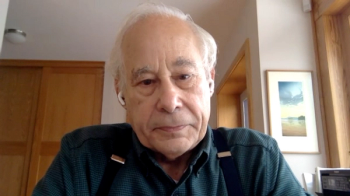
Donald M. Berwick, MD, MPP, president emeritus and senior fellow at the Institute for Healthcare Improvement and former CMS administrator, discusses challenges in cancer care and health care awaiting the Biden transition team.
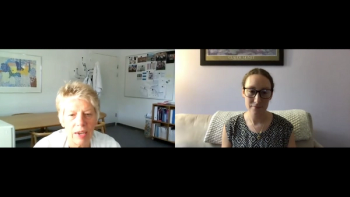
It will be very interesting to understand the mechanism of medication overuse headache, along with the effects antibodies have on the condition, said Rigmor Jensen, MD, professor of neurology at The University of Copenhagen and director of the Danish Headache Center.

With so many different oncology alternative payment models (APMs) available, choosing the right ones to participate in might simply mean finding which ones already align with what a practice is doing, said Amy Ellis, chief quality officer at Northwest Medical Specialties.
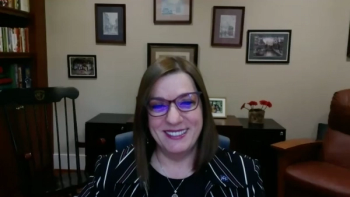
Adapting to telehealth was not difficult, but practice transformation around telehealth has been more difficult, and there remains the future uncertainty around continued reimbursement, said Sibel Blau, MD, of Northwest Medical Specialties and Quality Cancer Care Alliance.

Amid recent reforms on price transparency by CMS and the Trump administration, payers' workloads will substantially increase with notable challenges that include having to maintain accurate prices and the impact of exposed negotiated rates.

Consider social determinants of health when trying to help gay and bisexual men, stressed Milena Murray, PharmD, MSc, BCIDP, AAHIVP, associate professor at Midwestern University College of Pharmacy.
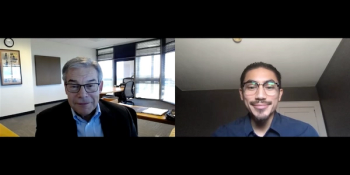
As coronavirus disease 2019 (COVID-19) continues to drive significant change in health care delivery, physician leaders affiliated with the Council for Accountable Physician Practices have worked to increase investment in strategies to address disparities in care exacerbated by the pandemic, such as value-based care and telemedicine.

Alexey Aleshin, MD, senior medical director of Oncology at biotech giant Natera, said that attention on finding biomarkers for metastatic reoccurrence needs to be directed at women with a high risk of this happening.

Telehealth is helpful, but it is not enough to make up for the delay in cancer diagnoses occurring as a result of the pandemic, said Sibel Blau, MD, of Northwest Medical Specialties and Quality Cancer Care Alliance.

Barbara McAneny, MD, founding partner of New Mexico Oncology Hematology Consultants, discusses why putting risk on oncologists is not the way to fix cost issues in cancer care.

Patients often ask how long they have to stay on biologic treatment for atopic dermatitis (AD), but there is a risk if therapy is stopped, says Matthew J. Zirwas, MD, a dermatologist in Ohio.

Changes in circulating tumor DNA (ctDNA) are indicative of treatment response in early-stage breast cancer, pointed out Alexey Aleshin, MD, senior medical director of Oncology at biotech giant Natera.
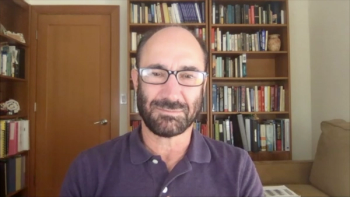
Michael Snyder, PhD, professor and chair of genetics at the Stanford University School of Medicine, discusses the ways in which precision health measurements can aid physicians in detecting and better managing diabetes.
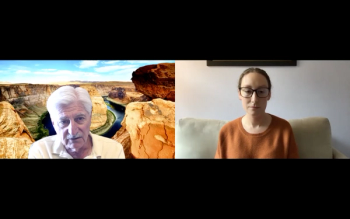
Pain is a subjective response with multiple features and components, said Frank Porreca, PhD, professor of pharmacology and anesthesiology at the University of Arizona and a member of the Department of Collaborative Research at Mayo Clinic in Arizona.
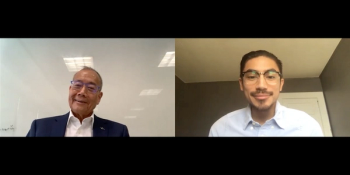
Despite limited resources to combat the coronavirus disease 2019 pandemic, collaborative efforts among the government, health plans, and providers in Puerto Rico exemplify how care can be better optimized in communities in the United States impacted by disparities in health care services.

Feedback from the field is incredibly important when participating in new payment models like the Oncology Care Model, said Basit Chaudhry, MD, PhD, founder of Tuple Health.

Decades ago, companies refused to heat-treat their blood products, which resulted in pooled plasma, among others, enabling many viruses to be transmitted, noted Robert K. Massie Jr, PhD, MA, of the Society for Progress.

The economics of cancer care remain a major concern as practices try to figure out how to deal with the cost of providing cancer care, said Sibel Blau, MD, medical oncologist, Northwest Medical Specialties, and president and CEO, Quality Cancer Care Alliance (QCCA).

259 Prospect Plains Rd, Bldg H
Cranbury, NJ 08512
© 2025 MJH Life Sciences®
All rights reserved.
